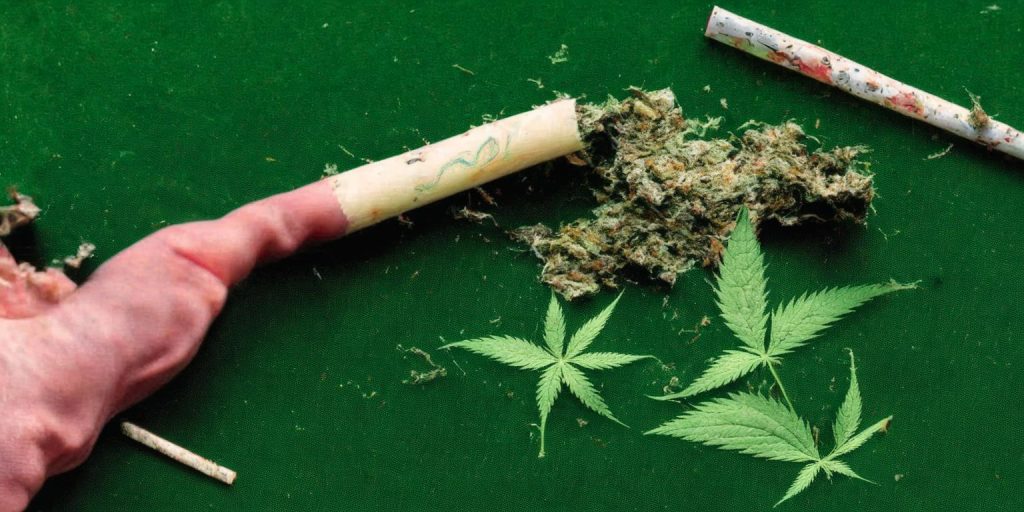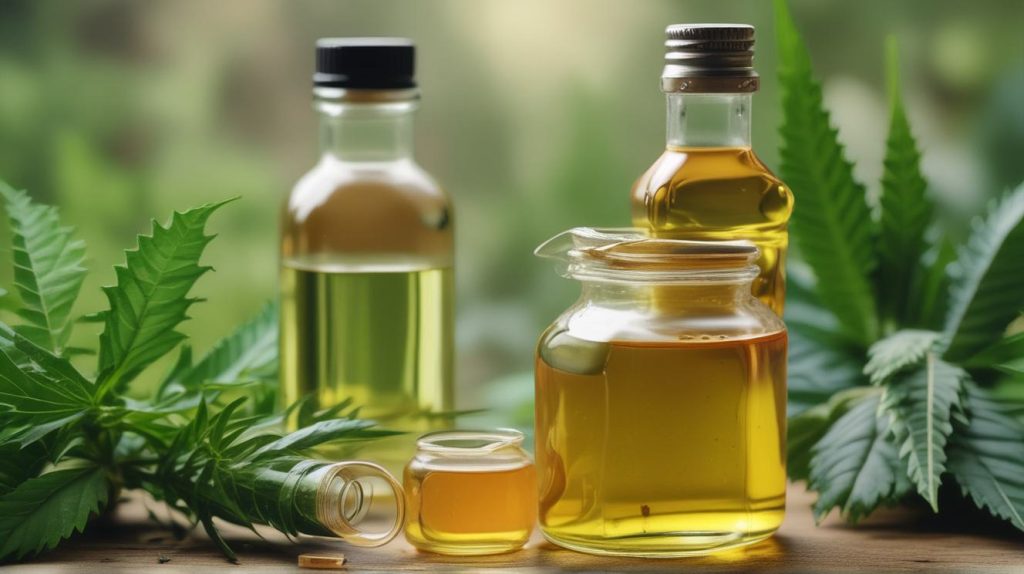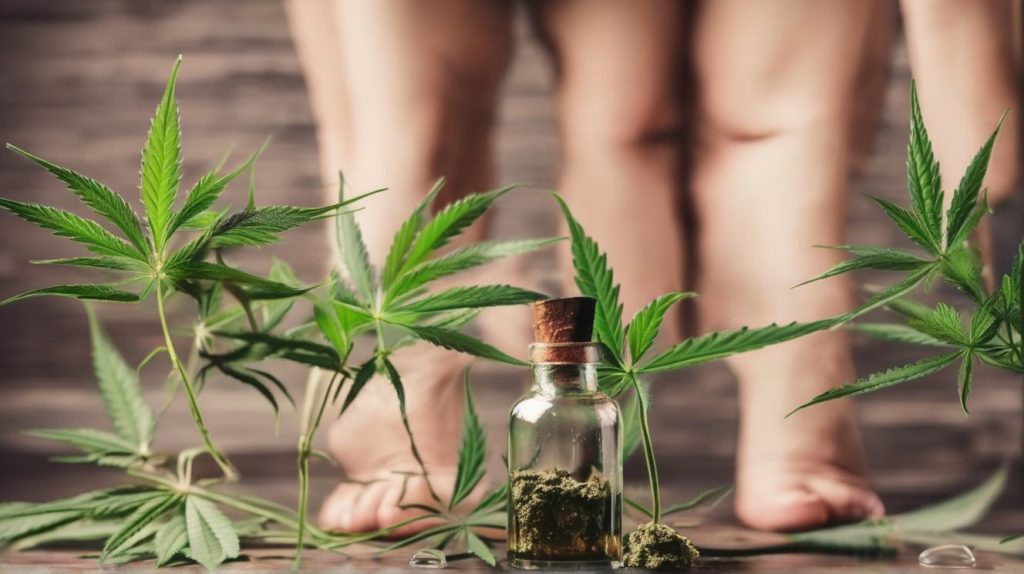
As a passionate explorer of the cannabis landscape, I’ve often found myself at the crossroads of curiosity and skepticism, especially when it comes to the controversial subject of weed’s impact on the healing process. There are whispers in the wind suggesting that our green friend might slow down recovery, while others passionately argue the opposite. The enigma surrounding this topic is as multifaceted as the crystal trichomes adorning a cannabis bud.
In this article, we will navigate the labyrinth of information, shedding light on the role of weed in wound healing. From empirical evidence to anecdotal tales, we’ll dissect the dichotomy of beliefs and delve into the heart of the matter. So, join me on this journey, as we unravel the mystery cloaked around the question – does weed slow recovery? Let’s embark on this quest for truth, one puff at a time.
A Groundbreaking Clinical Trial: NFL’s Investigation into Cannabis as a Post-Game Therapy
As someone who’s always been interested in the intersection of sports and medicine, the recent announcement of a clinical trial funded by the NFL has piqued my curiosity. This novel research project aims to investigate the much-debated, but primarily anecdotal, concept that cannabis can provide post-game therapeutic benefits to elite athletes dealing with post-competition pain.
It’s no secret that professional athletes often suffer intense physical stress and pain. Traditional pain management methods sometimes fall short, leading many to explore alternative therapies. That’s where cannabis comes in. There’s a growing body of anecdotal evidence suggesting that cannabis may help manage post-competition pain, offering relief where other treatments fail.
But anecdotes aren’t enough. We need solid scientific evidence. And that’s precisely what this groundbreaking NFL-funded trial hopes to provide. The study aims to delve deep into the role of cannabis in our pain management strategies, shedding light on whether it truly offers therapeutic benefits or if it’s just another false dawn in the search for effective pain relief.
Cannabinoid Receptors and Wound Healing
I was particularly intrigued by a study on cannabinoid receptors in wound healing. It seems that our body’s natural endocannabinoid system plays a significant role in the wound-healing process. The study suggests that cannabinoids found in weed might interact with these receptors, potentially influencing the speed and efficiency of wound healing. However, it’s not as simple as it sounds. The healing process is a complex interplay of many factors, and the role of cannabis in this dance is still not fully understood. Yet, the mere possibility that weed could affect the wound-healing process suggests that we need more comprehensive research in this field.
Dermatological Wounds: Cuts, Scrapes, and Acne
When it comes to skin wounds like cuts, scrapes, and even acne, the relationship between cannabis and wound healing becomes even more complex. Some studies suggest that certain forms of cannabis, such as CBD cream, can help reduce inflammation and promote healing. On the other hand, smoking weed might impair the immune response, potentially slowing down wound healing. As a layperson interested in understanding the science behind these claims, I’ve found that the evidence is mixed. It seems clear, though, that more research is needed to fully understand the potential risks and benefits of using cannabis for wound healing.
Tailored Advice for Your Cannabis Journey
As a keen observer of the cannabis universe, I’ve stumbled upon a puzzling question: does weed slow recovery? This topic has been a source of debate and it’s led me to dig deeper into the research. Interestingly, a recent study from my alma mater, the University of California School, sparked a conversation when the Football League announced its findings.
The Interplay of the Endocannabinoid System and Wound Recovery
One area that has particularly piqued my interest is the role of the endocannabinoid system in wound healing. Does it slow down the healing process or speed it up? Recent research seems to suggest a connection between the endocannabinoid system and skin fibrosis formation, which is inherently linked to wound recovery. I’ve delved into various studies, from those exploring the therapeutic potential of cannabinoids in chronic wound-related pain to others examining its impact on acute wound healing speed. The findings are intriguing, shedding light on the complex relationship between weed and wound recovery.
Is Wound Recovery Hindered by Cannabis Consumption?
As a curious cannabis consumer, I’ve often wondered: does weed slow the healing process? The answers are as varied as strains of cannabis itself. Some studies suggest it aids wound healing, while others imply it might slow recovery. This fascinating dichotomy has led me down a rabbit hole of research and personal exploration, seeking to understand the true impact of this potent plant on our bodies.
Harnessing Different Cannabis Forms to Boost Recovery
Some research suggests that certain cannabis forms could potentially aid wound healing, while others might slow it down.
Potential Hazards and Important Factors to Consider
I’ve found myself delving into various studies like those from San Diego Health and the Center for Medicinal Cannabis Research. It’s fascinating how CBD cream could influence receptors in wound healing. However, it’s not all straightforward. The San Diego Institutional Review has highlighted some potential risks.
About the Center for Medicinal Cannabis Research at UC San Diego
When it comes to investigating the medicinal potential of cannabis, few institutions are as renowned as the Center for Medicinal Cannabis Research at UC San Diego. I’ve always admired their work and commitment to understanding this complex plant.
The San Diego Institutional Review Board oversees the research conducted at the center, ensuring that all investigations adhere to the highest ethical standards. They’re committed to rigorous, unbiased research, which is why I trust their findings.
San Diego Health is also heavily involved in the center’s work. Their collaborative approach brings together experts from various fields, all working towards a common goal: understanding the potential therapeutic benefits and risks of cannabis.
In conclusion, while the anecdotal evidence suggesting cannabis can aid in recovery is compelling, we must wait for the results of rigorous, scientifically sound research before drawing any definitive conclusions. With institutions like UC San Diego and the NFL taking an active interest in this field, I’m hopeful that we’ll soon have the answers we need.
Questions
As an avid follower of the cannabis debate, I’ve often found myself in deep discussions about whether weed slows recovery. The question is a frequent one, especially after the Football League announced its decision to relax rules related to cannabis use. I’ve spent countless hours reading studies from institutions like the University of California School and the Diego School, trying to make sense of the conflicting findings.
In conclusion
The question of whether smoking weed speeds up the wound healing process is complex and multifaceted. From the range of sources I’ve explored, it’s clear that there are conflicting viewpoints on this matter. Some research, such as that cited by Leaf Well and AARON, suggests that smoking cannabis may slow the healing process due to the harmful compounds like carbon monoxide that are inhaled. On the other hand, anecdotal reports and some studies, like the one mentioned on Quora, suggest that cannabis, particularly when consumed in forms other than smoking, can have beneficial effects on wound healing due to its analgesic, anti-inflammatory, and antiseptic properties. However, as noted by UC San Diego Health, empirical evidence supporting these claims is currently limited. Therefore, while cannabis may hold potential for wound healing, more comprehensive research is needed to fully understand its effects and safely harness its benefits. Does Smoking Weed Speed Up the Wound-Healing Process?



